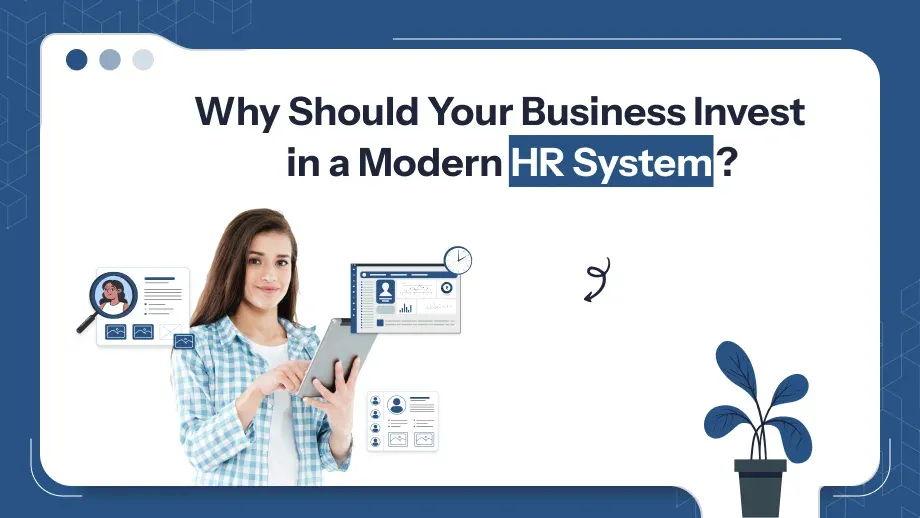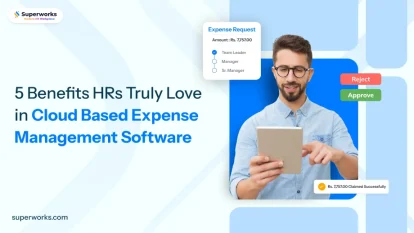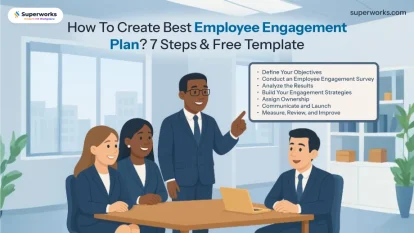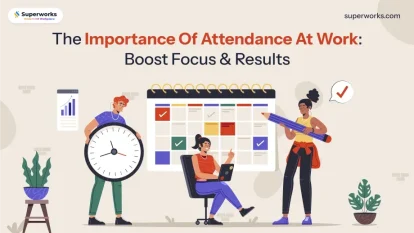
Effective management of employees has never been more crucial than in our fast-paced business market. It is a key element in directing and optimizing HR processes to streamline processes, increase employee satisfaction, and adhere to the policies of the organization. But what is exactly an HR system and why is it important to businesses of all sizes?
What is an HR System?
An HR system, often known as an HRMS is a computerized solution that assists in managing and optimizing the daily HR activities and the overall objectives of the organization. This can be anything from recruitment and onboarding to managing payroll and the performance of employees by managing different functions of human resources in a single platform that allows an efficient and seamless process implementation.
Meaning
The basic idea behind an HR system is a software tool that can help organizations control their workforces more efficiently. It is a central repository for all information related to employees It automates repetitive work and gives tools for strategic decisions if you’re a small company or an enterprise of a larger size, getting the right understanding of what the HR system meaning means is crucial to maximizing the full power of this system.
Benefits of Implementing an HR System
1. Streamlined HR Processes
The HR allows companies to make tasks easier, like monitoring attendance, managing leave, and processing payroll. These are activities that save much time and limit the possibilities of errors by the human factor.
2. Centralized Data Management
The human resource system provides an authoritative source of employee data. With the data being in one location, it means the data will be accurate and more accessible in times of need.
3. Empowerment Of Employees
Self-service portals enable employees to modify their details as well as request time off and look up pay slips, without having to reach the HR department directly.
4. Compliance and Risk Management
The systems ensure that the organization remains compliant with labor laws and legislation since it automates all compliance-related tasks and generates necessary reports.
5. Data-Driven Decision Making
HR software provides organizations with advanced analytics. This allows organizations to make the right decisions based on real-time information.
Revolutionize Workforce Management and Achieve Goals 5X Faster!
With a cutting-edge HR system, simplify processes, optimize workflows, and enhance team performance.
Key Features
Recruitment and Onboarding
An HR software streamlines the process of recruitment by managing application forms, job advertisements, and tracking of candidates. Once you have been hired, HRMS software in India will facilitate the onboarding procedure.
Attendance and Leave Management
Modern human resource system include tools for tracking employee attendance and managing leave requests, ensuring transparency and accuracy.
Payroll and Benefits Administration
From salary calculations to tax deductions, an HR manager system automates payroll processes, reducing administrative burdens.
Performance Management
An HR enables managers to set goals, track progress, and perform performance reviews that align individual contributions with organizational objectives.
Employee Engagement
With features like feedback tools and employee surveys, HR training systems foster a culture of engagement and open communication.
Training and Development
HR often include modules to track employee skills, identify training needs, and deliver personalized development plans, ensuring employees grow alongside the business.
Compliance Management
These systems automate the tracking of labor laws and regulations, helping businesses avoid legal risks and fines.
Types of HR Systems
Based on the requirements and size of the organization, HR systems can be categorized as follows:
- HR Information Systems (HRIS) focuses on the management of data and data reporting.
- Human Capital Management (HCM) Concentrate on the management of talent and HR strategic strategy.
- HR Management Systems (HRMS): HR management systems provide a complete set of HR tools that can be used to oversee all aspects of HR.
Challenges in Implementing
Despite their benefits, implementing an HR can come with challenges:
- High Initial Costs: The initial cost of an entire HR is high as a full system has to be bought and invested.
- Complex Integration Issues: Ensuring that it integrates well with existing systems.
- Employee Resistance: The Employees may resist the transition from manual processes to digital systems.
- Data Migration: The data migration requires careful planning between the old legacy system and the implementation of the new HR.
- Customization Limitations: Customization for unique organizational needs may not fully support all HR systems and processes.
How to Choose the Right HR System
The HR you choose for your company is an important factor, however, choosing the best one for your business isn’t a straightforward process. The following is an in-depth guide that will help you make an informed decision.
1. Identify Your Business Needs
Before entering the market, take a look at the specific needs of your company’s HR department and objectives. Are you seeking to streamline the payroll process, and increase employee engagement or your compliance management? The above priorities could be achieved via HRMS payroll software in India which will streamline your processes as well as increase your productivity. Know your needs; this will enable you to know which solution is the best for you.
2. Consider Scalability
As your business grows, your HR should scale with it. Choose a solution that will accommodate an increasing workforce, extra modules, and higher data storage needs.
3. Assess Ease of Use
A user-friendly system ensures rapid adoption by your HR team and employees. Choose intuitive interfaces, clear navigation, and minimal training requirements.
4. Prioritize Security Features
Given the nature of sensitive employee information, data security must be the top concern. Check that the HR system software provides strong security including password encryption, role-based access controls, and conformity with the regulations on data protection.
5. Assess Integration Capabilities
The HR software you use should be integrated seamlessly with other tools for business including ERP software, project management platforms, CRM, and other systems. This guarantees a consistent circulation of information between departments.
6. Explore Vendor Support and Reputation
Research potential vendors thoroughly. Check customer reviews, request demos, and inquire about their support services. A reliable vendor will offer consistent support and regular updates to keep your system running efficiently.
The Future of HR Systems
The landscape of the future of HR systems is continually evolving. Here are some of the major trends shaping the future of:
- AI and Automation: Automation and Artificial Intelligence have been enhancing HR functions in all aspects, from recruiting to involvement.
- Cloud-based HR Systems: Cloud solutions provide flexibility, accessibility as well as scalability.
- Predictive Analytics: HR employs analytics to anticipate the future and help improve decision-making.
- The Mobile First Design: trend is growing as more and more employees telecommute Mobile-friendly HR are highly sought-after.
- Employee Wellness Tools: Future Payroll HR systems will integrate wellness programs to enhance employee satisfaction and productivity.
Why Invest in an HR System Now?
Why invest in an HR now? Not only is it no longer optional, but investing in an HR has become a necessity. This is because of rising complexity and workforce management to its corresponding increased need for employee satisfaction. A modern HR can:
- Boost productivity.
- Enhance compliance.
- Improve employee engagement.
- Provide strategic insights through advanced analytics.
Technology is the most effective device, it can propel companies to what is important: empowering the employees to lead their work.
Conclusion
The implementation of an HR system now will mean keeping in the forefront and getting the business ready for the future. It is more fluid effective, efficient, and focused on the satisfaction of employees as the key to achievement.
In addition, the adoption of HR-related systems within an organization could help to create an innovative culture and allow for flexibility that will ensure longevity and success. Do not wait until inefficiency or a failure to comply blocks progress. Transform your HR operations today. Learn more about HR components at different levels by exploring HR system components and understanding the various modules in developing an effective system.







